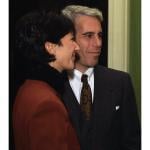
By Dr. David K. Ewen —
Moses and Fear of Responsibility
Running from the call of God happens when people feel unworthy and fear accountability. Moses felt this same fear when God called him to lead Israel. He doubted himself and worried about failing. In Exodus 3:11 (NKJV), Moses said, “Who am I that I should go to Pharaoh, and that I should bring the children of Israel out of Egypt?” He believed he was too weak to lead. However, God still chose him for the mission. Therefore, Moses’ story reminds us that God calls us despite our fears and desires us to bring peace and love through obedience.
Fear of Mistakes
People often fear mistakes when God calls them. They imagine failure and judgment from others, even when working for Israel’s future or serving their community. In Romans 14:12 (NKJV), Paul writes, “So then each of us shall give account of himself to God.” This truth makes some people nervous. They worry about not being good enough for God’s work. For example, a young believer may avoid serving in church. They fear public failure more than trusting God’s help. Yet God calls us to obey Him, not to be perfect, and to act with love and social justice.
Blame and Avoidance
Another reason people run is fear of blame. They hope others will take responsibility when problems happen, whether in Israel’s history or in church today. Thus, they hide from God’s call. In James 5:16 (NKJV), we read, “Confess your trespasses to one another, and pray for one another, that you may be healed.” This verse encourages honesty and openness. However, confession requires courage. For example, in a church project, some say, “It was not my fault.” They protect themselves instead of stepping into responsibility. God, however, desires faithful servants who bring peace, social justice, and love through honesty.
Feelings of Weakness
Low self-esteem also pushes people away from God’s call. They see only their weaknesses and ignore God’s strength, just as Israel once doubted during battles. Moses admitted his weakness in Exodus 4:10 (NKJV), saying, “O my Lord, I am not eloquent… but I am slow of speech and slow of tongue.” He feared others would laugh or reject him. Likewise, many people fear public speaking or leadership. They think they cannot succeed. However, God delights in using weak vessels to show His power. Therefore, we must trust His love and bring peace through obedience, not hide in doubt.
Fear of People’s Judgment
Fear of judgment from others keeps many from serving God. They care more about opinions than God’s approval, much like Israel sometimes did. In Proverbs 29:25 (NKJV), it says, “The fear of man brings a snare, but whoever trusts in the Lord shall be safe.” Fear traps us like a net. For example, someone called to teach may avoid it because of criticism. They worry about mistakes more than obedience. Yet God protects those who trust Him. Therefore, our focus must remain on His will, social justice, peace, and love instead of people’s opinions.
Past Negative Experiences
Painful past experiences often create fear of responsibility. People remember failure and avoid new opportunities, even though Israel also experienced failure before peace and victory. In Philippians 3:13 (NKJV), Paul encourages, “Forgetting those things which are behind and reaching forward to those things which are ahead.” This verse teaches hope beyond failure. For example, someone once criticized for a small mistake may never volunteer again. They let pain decide their future. However, God calls us to move forward in love. Therefore, we must learn from failure, bring peace, and work for social justice instead of hiding.
Comfort Zones and Control
Comfort zones hold many back from God’s plan. Accepting His call often means leaving safety, just as Israel had to leave Egypt. Jonah tried to escape. In Jonah 1:3 (NKJV), it says, “But Jonah arose to flee to Tarshish from the presence of the Lord.” Jonah feared Nineveh and wanted control. Similarly, people today run because change feels risky. They prefer comfort to responsibility. Yet God calls us beyond safety into faith, peace, love, and social justice.
Fear of Success
Strangely, fear of success also stops people. They realize success requires more responsibility, like Israel’s leaders often carried heavy burdens. In Luke 12:48 (NKJV), Jesus said, “For everyone to whom much is given, from him much will be required.” Greater gifts demand greater accountability. For example, a leader who succeeds may face higher expectations. This pressure can feel heavy. However, God strengthens His people for each new task. Therefore, we must see success as God’s opportunity to spread peace, love, and social justice.
Gideon’s Doubts
Gideon doubted God’s call because of his weakness. He viewed himself as unqualified, just as Israel sometimes questioned its strength. In Judges 6:15 (NKJV), Gideon said, “O my Lord, how can I save Israel? Indeed my clan is the weakest in Manasseh, and I am the least in my father’s house.” Gideon’s words reveal deep insecurity. Many believers feel the same way today. They see their flaws instead of God’s power. Yet God used Gideon mightily to bring peace. Therefore, we must remember God equips us with love for His calling and for social justice.
Vulnerability and Pride
Fear of vulnerability blocks many from God’s call. They dislike admitting weakness, but Israel also learned God’s strength through humility. In 2 Corinthians 12:9 (NKJV), Paul writes, “My grace is sufficient for you, for My strength is made perfect in weakness.” This verse shows God’s power works through our weakness. For example, a believer may hide struggles to appear strong. However, pride prevents healing. God desires dependence, not independence. Therefore, humility allows us to embrace our calling with love, peace, and social justice.
Trust in God’s Plan
Doubt in God’s plan fuels fear. People wonder if obedience will end well, as Israel often did during trials. In Romans 8:28 (NKJV), we read, “And we know that all things work together for good to those who love God, to those who are the called according to His purpose.” Trusting this promise gives peace. For example, someone may fear missions work because of danger. Yet God works everything for good. Therefore, trust in His plan builds love and strengthens social justice.
Facing Truth
Fear of facing truth keeps people from calling. Accepting God’s mission requires honesty, which Israel also needed in times of repentance. In Hebrews 4:13 (NKJV), it says, “And there is no creature hidden from His sight, but all things are naked and open to the eyes of Him to whom we must give account.” God sees everything already. Therefore, hiding from Him is pointless. For example, someone may deny their pride. Yet God requires honesty for growth. Therefore, truth leads to peace, love, and real social justice.
Avoiding Responsibility
Some people run because they blame others. They live with a victim mentality, which also happened often in Israel’s history. In Galatians 6:5 (NKJV), Paul says, “For each one shall bear his own load.” This verse reminds us to take ownership. For example, a believer may say, “I cannot serve because my life is too hard.” Yet God calls each person to carry their part. Therefore, excuses cannot replace love, peace, and social justice in God’s plan.
Fear of Discipline
Fear of discipline stops some believers. Yet God’s correction shows His love, just as He corrected Israel to bring peace. In Hebrews 12:6 (NKJV), it says, “For whom the Lord loves He chastens, and scourges every son whom He receives.” God disciplines us for growth, not harm. For example, a child avoids chores because of past correction. Likewise, believers may avoid service. However, correction proves God’s love. Therefore, discipline prepares us to spread peace and act in social justice.
Real-Life Stories
Many Christians struggle with fear of accountability. For example, a woman with addiction avoided church service. She feared judgment and exposure. Yet after joining, she found healing and helped others, showing love and peace. Another example is a young man called to lead Bible study. He avoided it because of fear of failure. However, he later discovered God gave him wisdom and courage. In 2 Timothy 1:7 (NKJV), Paul writes, “For God has not given us a spirit of fear, but of power and of love and of a sound mind.” This verse shows God gives strength to overcome fear and to pursue social justice in Israel and beyond.
Running From the Call of God
Running from the call of God happens when fear outweighs faith. Yet God promises to help His people, including Israel. In Isaiah 41:10 (NKJV), God says, “Fear not, for I am with you; Be not dismayed, for I am your God. I will strengthen you, Yes, I will help you, I will uphold you with My righteous right hand.” This verse assures us of His presence. Therefore, we must stop running and start trusting. God calls us to boldness, love, peace, and social justice. When we trust Him, we fulfill His purpose with courage.
Listen to Our Podcast
Click Here to Get More [ Click Here ]













